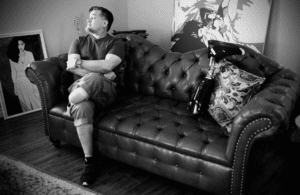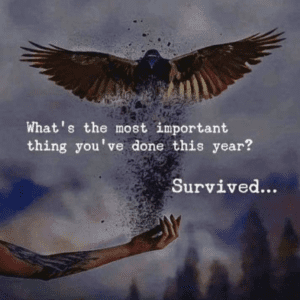Self-quarantine one leg at a time is now a reality. We are at the beginning of what promises to be a long, pandemic summer. Evidently, coronavirus cases are still climbing in nineteen states. Second, wearing a mask self-quarantining is one of the few ways we have of protecting ourselves and maintaining control of our lives. As an amputee, if it has been a long time since you lost your limb, it is typical that people will shy away from you right after your amputation, however, over time, people may become more comfortable and less awkward around you. When the pandemic forced us to avoid each other in social distancing, we faced the same crisis an amputee did right after their amputation. The skills we learned then become helpful now. Self-quarantine one leg at a time is now a reality.

Although the psychological impact of the coronavirus pandemic has not fully manifested, some experts predict an impending wave of new disorders. The World Health Organization warned back in May of “a massive increase in mental health conditions in the coming months.” People are turning to remote therapy using digital platforms like a Crisis Text Line and Talkspace to get some help.
The psychological issues that have grown from the pandemic are not new. Only the intensity of it and the worldwide extent that it is happening is different. Having to not go to work has increased people’s stress, especially those who live to work. There are various stressors from having the whole family around you all the time as well. Those who live alone face isolation and a significant loss in any support system. Four out of ten people or thirty-five million Americans live alone, and many of them experience severe loneliness. Due to the reduction in people’s support systems, depression is on the increase.
In getting back on your feet and learning to walk again, you had to face your psychological problems that make it hard to recover. Amputees have gone through much of what you are facing now. The self-reliance that you developed in your physical therapy gives you a skill set to meet this pandemic.
Self-quarantining will lead to a severe increase in agoraphobia. Amputees have had to conquer these fears. They learn to leave their houses and defy their fear of falling. Spending more time alone or away from other people is a skill all amputees have learned.
This pandemic will create anxiety. Infection may not have any symptoms. There are no clear examples of the deadliness of this virus. Numbers cannot convey the suffering and loss that their loved ones feel. No one is dying in front of you. People quickly take the attitude that it won’t happen to me. Their fear turns to anger and defiance. All amputees cannot ignore their missing limb. They must face their fears and deal with their loss. This experience will be helpful in dealing with the pandemic.
Psychiatric prescriptions have gone up by as much as thirty-four percent since the pandemic has arrived. “Deaths of despair” are a new form of suicide often accelerated by drugs and alcohol abuse. The despair is tied to multiple factors, like unemployment, fear, dread, isolation, and an uncertain future. Most amputees face the despair of unemployment, being unable to drive, and a loss of relationships. It was hard to get their lives back together. These same factors are present now. It will be the same skills you have learned in your physical therapy that will save you now.
Other symptoms that may be connected to the pandemic include emotional extremes, stress, anxiety, irritability, anger, and emotional exhaustion. Additionally, qualitative studies have identified a range of other psychological responses to quarantine, including confusion, fear, grief, numbness, and anxiety-induced insomnia. However, there is a tendency to doubt your sanity and, at other moments, the sanity of others. When the threat of getting the virus touches on previous traumas in your life, you may experience Post Traumatic Stress. Stressors included longer quarantine duration, infection fears, frustration, boredom, inadequate supplies, inadequate information, financial loss, and stigma.

Pop-psychology has come up with the term corona-phobia. While the notion of a condition that requires fixing or treatment is often attached to anxiety, the fear of catching a highly contagious disease like COVID-19 is entirely rational; therefore, it is essential to emphasize that any anxiety, distress, or despair that people are currently struggling with is a natural and reasonable response to the present circumstances. With everything that’s happened with lockdown and the ambiguity and the stress and the loss of earnings that many people have faced, it is natural that we have complicated emotions and internal struggles.





